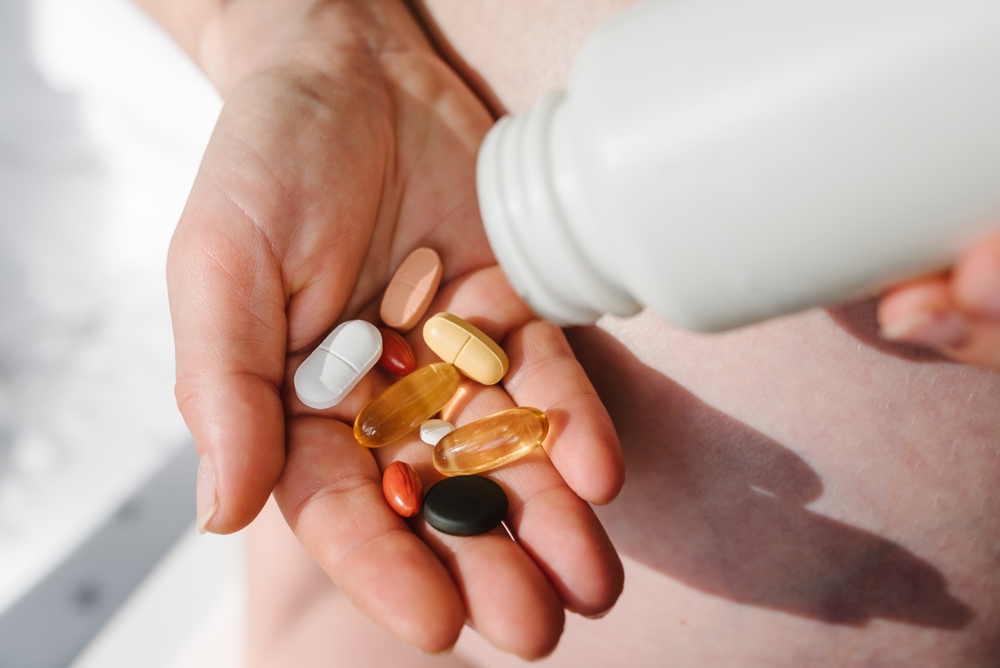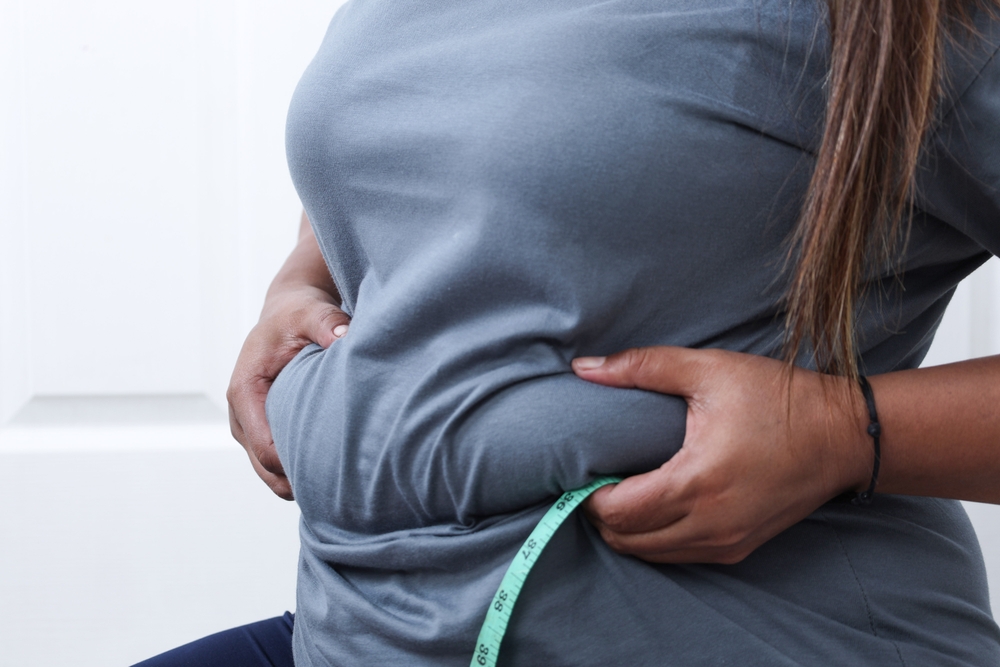Zinc is an essential mineral that plays a crucial role in the growth, development, and overall health of children. Parents may wonder if it is safe to give zinc supplements to their kids and how much they need to consume for optimal health. In this comprehensive guide, we will cover everything parents need to know about zinc for kids, including its benefits, recommended daily intake, potential deficiencies, safe dosages, and more.
Key Takeaways
- Zinc is important for children’s immune function, growth and development, cognitive function, and overall well-being.
- Recommended daily intake of zinc varies for children of different ages and can be met through a balanced diet.
- Zinc deficiency in children can cause delayed growth, low appetite, and weakened immune function.
- Consulting a healthcare professional before giving zinc supplements to children is important to ensure safe dosage and monitoring for potential side effects.
- Zinc-rich foods, such as red meat, poultry, beans, and nuts, can be incorporated into a child’s diet to ensure they are getting enough zinc naturally.
The Importance of Zinc for Kids
Zinc is an essential mineral that plays a key role in the growth and development of children. It is required for numerous physiological functions in the body, including immune function, DNA synthesis, tissue repair, and cognitive function.
Research has shown that zinc supplementation in children can improve immune function and reduce the incidence and severity of infections. Additionally, zinc has been found to promote growth and development, particularly in infants and young children.
Aside from its physical benefits, zinc has also been linked to improved cognitive function in children. Studies have shown that zinc supplementation can improve attention, memory, and overall learning ability in children with zinc deficiency.
Zinc Requirements for Kids
Zinc is an essential mineral for children’s growth and development. The recommended daily intake of zinc varies depending on the child’s age. According to the National Institutes of Health (NIH), the recommended dietary allowances (RDA) for zinc in children are as follows:
| Age Range | RDA for Zinc |
|---|---|
| 0-6 months | 2 mg |
| 7-12 months | 3 mg |
| 1-3 years | 3 mg |
| 4-8 years | 5 mg |
| 9-13 years | 8 mg |
It is important to note that meeting the daily zinc requirements through a balanced diet is preferable to relying on supplements. Some zinc-rich foods include:
- Meat (beef, pork)
- Poultry (chicken, turkey)
- Seafood (oysters, crab)
- Beans and legumes (chickpeas, lentils)
- Nuts and seeds (cashews, pumpkin seeds)
- Dairy (yogurt, cheese)
Parents should consult a healthcare professional, such as a pediatrician or registered dietitian, if they have any concerns about their child’s zinc intake.
Potential Zinc Deficiency in Children
Zinc is an essential mineral that plays a critical role in several physiological functions in the human body, including growth, immune function, and wound healing. If children do not get enough zinc in their diet, they may be at risk of developing a zinc deficiency. Zinc deficiency is more common in children and pregnant women, as they require more zinc to support their growing bodies.
The causes of zinc deficiency in children can vary, but it is often linked to a diet that is low in zinc-rich foods such as meat, seafood, and dairy. Other factors that can contribute to zinc deficiency in children include gastrointestinal disorders that affect the absorption of zinc, vegetarian or vegan diets that exclude animal products, and certain medications that interfere with zinc absorption.
Common symptoms of zinc deficiency in children include slow growth, frequent infections, delayed wound healing, hair loss, and diarrhea. If left untreated, zinc deficiency can lead to more severe health conditions such as stunted growth, decreased immune function, and delayed sexual maturation.
If you suspect that your child may have a zinc deficiency, it is essential to seek medical advice from a healthcare professional. A pediatrician or registered dietitian can evaluate your child’s nutritional status and recommend dietary changes or zinc supplements to help address any deficiencies.
Safe Zinc Dosage for Kids
When it comes to supplementing with zinc, it’s important to give children the right dosage based on their age and weight. The recommended daily intake of zinc for children varies depending on their age and gender, with boys needing slightly more than girls.
| Age | Zinc Recommended Dietary Allowance (RDA) (mg/day) | Maximum Safe Daily Zinc Dosage (mg/day) |
|---|---|---|
| 0-6 months | 2 | 4 |
| 7-12 months | 3 | 5 |
| 1-3 years | 3 | 7 |
| 4-8 years | 5 | 12 |
| 9-13 years | 8 | 23 |
| 14-18 years (boys) | 11 | 34 |
| 14-18 years (girls) | 9 | 34 |
It’s important to note that the maximum safe daily dosage includes zinc from both food and supplements. Too much zinc can lead to adverse effects, such as nausea and vomiting, diarrhea, and abdominal cramping. In rare cases, excessive zinc intake can also lead to more serious health problems, such as copper deficiency and anemia.
If you’re considering giving your child a zinc supplement, it’s best to consult a healthcare professional first. They can help you determine the appropriate dosage based on your child’s individual needs and health status.
Potential Side Effects of Zinc in Kids
While zinc supplementation can be beneficial for children, it is important to note that there can be potential side effects if not taken properly. Some common side effects of zinc supplementation in children include:
- Nausea
- Vomiting
- Diarrhea
- Stomach cramps
It is important to follow the recommended dosage guidelines for zinc supplements to avoid these side effects. Additionally, long-term use of high doses of zinc can lead to copper deficiency, which can cause anemia and weaken the immune system.
If your child experiences any of these symptoms while taking zinc supplements, it is recommended to stop the supplementation and consult a healthcare professional.
Zinc-Rich Foods for Kids
While zinc supplements can be a helpful addition to a child’s diet, it’s important to remember that they should not replace a balanced diet rich in zinc. Here are some foods that are naturally high in zinc:
| Food | Zinc Content (per serving) |
|---|---|
| Grass-fed beef | 3-7 mg |
| Pumpkin seeds | 2-3 mg |
| Lentils | 1-3 mg |
| Chickpeas | 1-2 mg |
| Yogurt | 1-2 mg |
| Oysters | 1-2 mg |
| Cashews | 1 mg |
Encouraging your child to eat a balanced diet with a variety of these zinc-rich foods can go a long way in ensuring they meet their recommended daily intake. Plus, it’s a great way to introduce them to new flavors and textures!
Zinc Supplements for Children
When it comes to giving children zinc supplements, it is important to choose age-appropriate options and follow safe dosage guidelines. There are various forms of zinc supplements available, including chewable tablets, liquid supplements, and gummies.
It is crucial to consult with a healthcare professional, such as a pediatrician or registered dietitian, before starting any zinc supplementation for children. They can provide guidance on the appropriate dosage based on the child’s age and weight, and can also assess any potential interactions with other medications or supplements the child may be taking.
Consulting a Healthcare Professional
Before starting any zinc supplementation for children, it is important to consult a healthcare professional such as a pediatrician or a registered dietitian. They can provide guidance on the proper dosage and form of zinc supplements to ensure they are age-appropriate and safe for the child.
Consulting a healthcare professional is especially important if the child has any underlying medical conditions or is taking any medications, as zinc supplements may interact with certain medications and affect their efficacy.
Additionally, healthcare professionals can also provide guidance on incorporating zinc-rich foods into the child’s diet to meet their daily recommended intake naturally. They can also monitor the child’s zinc levels to ensure they are not at risk of deficiency or toxicity.
Frequently Asked Questions about Kids and Zinc
As a parent, you want to ensure your child is getting all the nutrients they need to grow up healthy and strong. Zinc is an essential mineral that plays a vital role in their development, but you may have questions about whether it’s safe or how much they need. Here are some frequently asked questions about kids and zinc:
Can kids take zinc supplements?
Yes, children can take zinc supplements, but it’s important to consult with a healthcare professional before starting any supplementation. Zinc supplements should only be used when a child’s diet is not providing enough zinc, and it’s crucial to follow the recommended dosage guidelines based on their age and weight.
What are the benefits of zinc for kids?
Zinc is essential for immune function, growth and development, cognitive function, and overall well-being. It helps with wound healing, taste and smell, and is involved in the synthesis of DNA and protein. Zinc also supports healthy brain development and may improve mood, attention, and memory function.
What are the recommended zinc requirements for kids?
The recommended daily intake of zinc for children varies by age and gender. Infants need around 2 mg per day, while children aged 1-8 years need 3-5 mg per day. Children aged 9-13 years require 8 mg per day, and adolescents aged 14-18 years need 11 mg per day for females and 12 mg per day for males.
What are the symptoms of zinc deficiency in children?
Zinc deficiency in children can lead to a weakened immune system, growth and development delays, skin rashes, hair loss, diarrhea, and loss of appetite. It can also affect mood and behavior, leading to irritability and depression.
What are the potential side effects of zinc in kids?
Potential side effects of zinc supplementation in children include nausea, vomiting, diarrhea, stomach cramps, and headaches. Excessive zinc intake can also interfere with the absorption of other essential minerals, such as copper and iron. It’s essential to follow the recommended dosage guidelines and monitor for any adverse effects.
What are some zinc-rich foods for kids?
Zinc can be found in a variety of foods, including meats, seafood, nuts, seeds, and legumes. Some examples of zinc-rich foods for kids are beef, chicken, fish, pumpkin seeds, cashews, chickpeas, and lentils. It’s essential to offer a balanced diet that includes a variety of nutrient-dense foods to ensure adequate zinc intake.
Are there different forms of zinc supplements for children?
Yes, there are various forms of zinc supplements available for children, including chewable tablets, liquid supplements, and gummies. It’s crucial to choose age-appropriate options and follow the recommended dosage guidelines.
Why is it important to consult a healthcare professional?
Consulting a healthcare professional, such as a pediatrician or registered dietitian, is essential before starting any zinc supplementation for children. They can evaluate your child’s individual needs and make recommendations based on their age, weight, and overall health status. They can also monitor for any potential adverse effects and adjust the treatment plan if necessary.
The Holistic Approach at the Cancer Center for Healing
When it comes to cancer care, the Cancer Center for Healing in Irvine, CA takes a holistic approach that considers the whole person, not just their cancer diagnosis. Led by renowned expert Dr. Leigh Erin Connealy, the center provides a wide range of treatment modalities that go beyond traditional Western medicine.
At the Cancer Center for Healing, patients receive personalized care tailored to their unique needs, with an emphasis on natural and alternative therapies that promote healing and overall wellness. Whether it’s acupuncture, nutrition counseling, or IV therapy, the center’s team of specialists works together to provide comprehensive cancer care for all types of cancer.
Comprehensive Cancer Care for All Types
The Cancer Center for Healing located in Irvine, CA, offers comprehensive cancer care services that cater to the individual needs of patients, regardless of the cancer type. The center’s integrative approach combines Western and Eastern medicine to provide patients with a holistic treatment plan.
At the Cancer Center for Healing, patients receive an extensive evaluation, including lab testing, imaging studies, and a comprehensive medical history. Based on this assessment, the team of healthcare professionals develops a personalized treatment plan that addresses all aspects of the patient’s health, including physical, emotional, and spiritual well-being.
Integrative Cancer Treatment Plans
The Cancer Center for Healing uses a wide range of treatment modalities to treat cancer, including:
- Oxygen therapies
- IV vitamin C therapy
- Nutritional therapy
- Acupuncture
- Chelation therapy
- Hyperthermia treatment
- Detoxification protocols
- Herbal medicine
- Biological therapies
The center also offers a variety of other services to support cancer patients, such as counseling, meditation, and stress management. The goal is to treat the whole person, not just the disease, and provide support to patients and their families throughout the treatment process.
All treatment plans are tailored to the individual patient’s needs, taking into account their medical history, cancer type, stage of cancer, and overall health. The team of healthcare professionals at the Cancer Center for Healing works together to provide patients with the best possible care.
The Expertise of Dr. Leigh Erin Connealy
As the founder and medical director of the Cancer Center for Healing in Irvine, CA, Dr. Leigh Erin Connealy is a renowned expert in cancer care. With over 30 years of experience in the field, she combines traditional and alternative therapies to create personalized treatment plans for her patients.
Dr. Connealy is board-certified in medical oncology, hematology, and integrative medicine, and has treated patients with all types of cancer. She is a strong believer in a holistic approach to care, addressing not just the physical aspect of the disease but also the emotional and spiritual components.
Dr. Connealy is also the author of the book The Cancer Revolution: A Groundbreaking Program to Reverse and Prevent Cancer, which explores the different factors that contribute to the development of cancer and provides practical advice on how to prevent and treat the disease.
Schedule a Consultation at the Cancer Center for Healing
If you are interested in learning more about the comprehensive cancer care provided by the Cancer Center for Healing, we encourage you to schedule a consultation with Dr. Leigh Erin Connealy. During your appointment, Dr. Connealy will take the time to understand your unique needs and create a personalized treatment plan that addresses all aspects of your well-being.
To schedule your consultation, please call us at (949) 680-1880. We look forward to hearing from you and helping you on your journey towards healing.
Conclusion
Zinc is an essential nutrient for children’s overall health and development. While it is generally safe for kids to consume zinc through a balanced diet, it is important to consult a healthcare professional before starting any supplementation. By meeting their recommended daily intake of zinc through natural food sources or supplements, parents can help support their child’s immune function, growth and development, cognitive function, and overall well-being.
Remember to choose age-appropriate zinc supplements and follow the recommended dosage guidelines. Keep in mind that excessive zinc intake can lead to potential side effects, such as nausea, vomiting, and diarrhea. Thus, monitoring the intake of zinc in children is crucial.
When it comes to cancer care, the Cancer Center for Healing located in Irvine, CA, is a great resource that offers comprehensive and holistic treatment modalities under the guidance of Dr. Leigh Erin Connealy. For more information or to schedule a consultation, call them at (949) 680-1880.
FAQ
Q: Can kids take zinc?
A: Yes, zinc is safe for children to take. It plays an important role in their overall health and development.
Q: What are the benefits of zinc for kids?
A: Zinc is beneficial for children as it supports immune function, growth and development, cognitive function, and overall well-being.
Q: What are the zinc requirements for kids?
A: The recommended daily intake of zinc for children varies depending on their age. It is important to meet their zinc requirements through a balanced diet.
Q: Can kids have zinc deficiency?
A: Yes, zinc deficiency is possible in children. It can be caused by various factors and may have potential health implications.
Q: What is the safe dosage of zinc for kids?
A: The safe dosage of zinc supplements for children depends on their age and weight. It is important to consult a healthcare professional for guidance.
Q: Are there any potential side effects of zinc in kids?
A: There can be potential side effects of zinc supplementation in children, so proper dosage and monitoring are essential.
Q: What are some zinc-rich foods for kids?
A: Zinc-rich foods that can be incorporated into a child’s diet include lean meats, seafood, legumes, nuts, seeds, and dairy products.
Q: Are there zinc supplements available for children?
A: Yes, there are various forms of zinc supplements available for children, such as chewable tablets, liquid supplements, and gummies. It is important to choose age-appropriate options.
Q: Should I consult a healthcare professional before giving zinc to my child?
A: Yes, it is important to consult a healthcare professional, such as a pediatrician or registered dietitian, before starting any zinc supplementation for children.


















